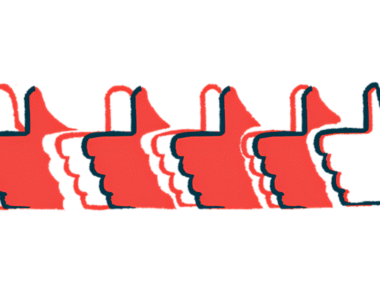A mother’s heartache: Trying to find hope amid the pain of hemophilia
Sometimes I simply need others to acknowledge that I'm grieving
Written by |

I’m grieving for my youngest son, Caeleb, a high school senior. Caeleb’s academic pursuits haven’t been successful, according to the world. Society revels in straight A’s, being in the top 10% of a graduating class, and receiving full-ride scholarships to college. If a student isn’t meeting these expectations and doesn’t attend college, the parents must not have done well in raising their child. It’s a horrible reality in this world.
While students may face a variety of challenges that affect their academic success, the reason Caeleb struggles in school is because he has hemophilia with an inhibitor. Not all who live with an inhibitor endure such severe complications, but for my son, the long-term effects have been devastating. He’s smart and capable, but the numerous days he’s missed from school have been hard to overcome.
Caeleb injects Hemlibra (emicizumab-kxwh), a revolutionary hemophilia medication, into his thigh twice a month. This treatment keeps regular joint bleeding at bay and has been transformative for many with severe hemophilia A. These patients may even appear to lead unaffected, healthy lives.
I love that many newly diagnosed patients, especially babies, may never experience a joint bleed. Thanks to therapies like Hemlibra, their joints may never incur damage from hemophilia.
But then there are young men like my son.
The damage to Caeleb’s right knee and ankle is irreversible. He’s in physical therapy, takes Celebrex (celecoxib) and gabapentin, and uses a narcotic sparingly in attempts to manage the pain. He gets injections into his knee that provide minimal relief. He soaks in the hot tub, uses cannabidiol (better known as CBD) salves, wears compression sleeves, and uses a walker, cane, and wheelchair. He even had surgery recently to clean out his ankle and shave a couple of bone spurs to help alleviate his pain.
His father and I do everything possible to encourage our youngest son to use these various methods and keep moving forward. Caeleb’s orthopedist said that, even though Caeleb is too young now, an ankle replacement wouldn’t be possible due to the amount of damage. An ankle fusion is the only surgical intervention that might help my son.
We’ve explored every possibility, but his pain is still debilitating.
Debilitating, incapacitating, hindering, unbearable — whatever word I use, it means that Caeleb is practically bed-bound.
A 17-year-old boy should drive, go on dates, hang out at a friend’s house playing video games, and work a part-time job. But the pain keeps Caeleb from even driving.
When hope is hard to come by
As I shed tears recently about my son’s pain, some people reminded me that Caeleb takes a groundbreaking treatment. Why was I not hopeful for what might come?
Their comments hurt and made me feel like a hypocrite. After all, I wrote a book titled “Dear Hemophilia: Finding Hope Through Chronic Illness.” But in that moment, I didn’t need anyone telling me to be hopeful about what the future might bring. I’m a woman of faith and hope, but witnessing my son’s tears, frustrations, and limitations shatters my heart.
So please, think before speaking. Take a pause. Don’t try to find a solution when someone is sharing their frustrations. Just be present.
Sometimes I simply need to hear, “I’m so sorry, Cazandra. I hear you. I see you. I love you.”
Let us all go out into the world and help others by hearing, seeing, and loving them through all circumstances.
Note: Hemophilia News Today is strictly a news and information website about the disease. It does not provide medical advice, diagnosis, or treatment. This content is not intended to be a substitute for professional medical advice, diagnosis, or treatment. Always seek the advice of your physician or another qualified health provider with any questions you may have regarding a medical condition. Never disregard professional medical advice or delay in seeking it because of something you have read on this website. The opinions expressed in this column are not those of Hemophilia News Today or its parent company, Bionews, and are intended to spark discussion about issues pertaining to hemophilia.




Ayesha Banerjee
Hello Cazandra,
I'm a high schooler with severe hemophilia A. Because I'm a girl, it was caused by both inheritance and a mutation.
These entries -- especially this one -- mean a lot. I see the struggling-with-bleeds part of myself here that I don't get to see anywhere in my real life. I don't want to have to be accommodated for, but then I read these and remember that wanting understanding is not the same thing as demanding pity.
Hemlibra changes how I view my future. I can finally see myself staying happy in old age (and getting to old age at all). But there are still tough days and weeks. I'm admittedly jealous of the babies who, as you said, might never have an internal bleed. Some era of hemophilia is ending and I'm thankful to be able to navigate out of it with its other survivors.
I am not alone in my hope. But I am also not alone in mourning what this condition has taken from my life or mourning what I know it'll continue to take. Sorrow isn't weakness and grief is a right.
You and your family are appreciated; I hope you feel that.
Cazandra Campos-MacDonald
Ayesha,
Oh, my friend, I am so glad you commented. Yes, we have hope that is changing the entire landscape of hemophilia. And as you said, "Some era of hemophilia is ending, and I'm thankful to be able to navigate out of it with its other survivors." Yes, Ayesha, indeed. I see you, and I hear you. We'll navigate together :) Peace be with you, Caz